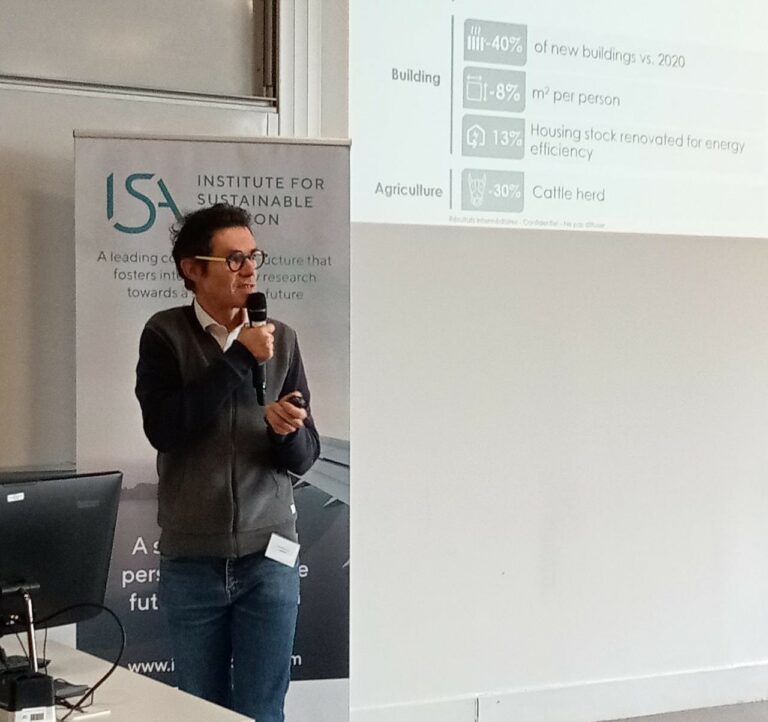
ISA BI-ANNUAL WORKSHOP – 13 DECEMBER 2024
The Institute for Sustainable Aviation (ISA) will hold its fourth workshop on trajectories for the future of aviation on Friday 13th December 2024.
On Friday, December 13, the Institute for Sustainable Aviation (ISA) hosted its 4th workshop on « Trajectories for the Future of Aviation » at ENAC. The event brought together more than 60 participants — researchers, students, and industry professionals — warmly welcomed by Mathy Gonon, Director of Studies and Research at ENAC, and Laurent Joly, Director of ISA.
This workshop featured captivating presentations spanning various research areas:
– Impacts of sustainability oriented regulatory measures on air-rail modal shifts: the case of a kerosene tax by Chantal Roucolle
– Which tools to integrate usage patterns into the equation for sustainable mobility by Laetitia Bornes
– IF Initiative: A forward-looking approach aligned with planetary boundaries by Stéphane Amant
– Formation and radiative forcing of condensation trails by Maxime Périni
– Advances and perspectives around AeroMAPS: Towards a modular IAM for aviation by Thomas Planès
By addressing these key topics, the speakers facilitated insightful exchanges and provided the audience with valuable perspectives on the challenges and opportunities shaping the future of the aviation sector.
Please find the presentations below :
Impacts of sustainability oriented regulatory measures on air-rail modal shifts by Chantal Roucolle
IF Initiative A forward looking approach aligned with planetary boundaries by Stéphane Amant
Formation and radiative forcing of condensation trails by Maxime Périni
Advances and perspectives around AeroMAPS Towards a modular IAM for aviation by Thomas Planès

l

The Institute for Sustainable Aviation (ISA) will hold its fourth workshop on trajectories for the future of aviation on Friday 13th December 2024.

The ISA-labelled Antoine Salgas’ thesis focuses on the multidisciplinary modelling of air transport decarbonisation scenarios.

The Institute for Sustainable Aviation (ISA) is pleased to announce the first edition of its Research School, to be held 18–22 May 2026 on the
By continuing to browse this site, you are agreeing to the use of cookies for statistical purposes, as well as to facilitate information sharing on social networks. For more information, you can consult our Cookie policy.